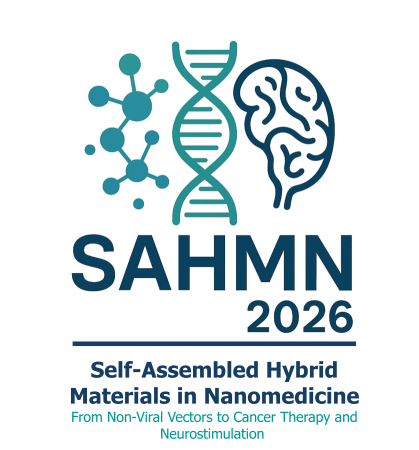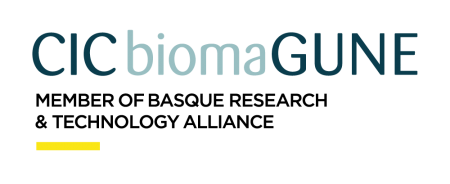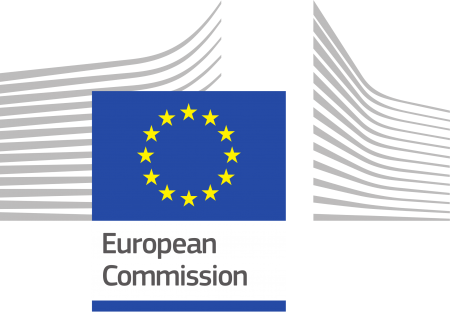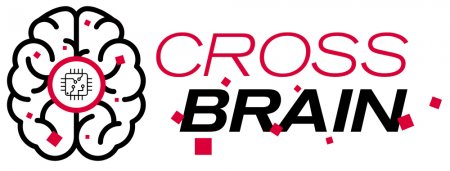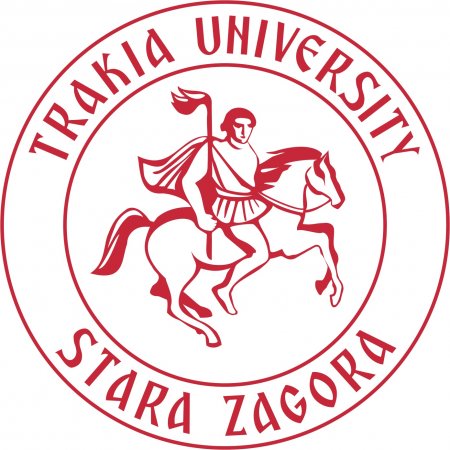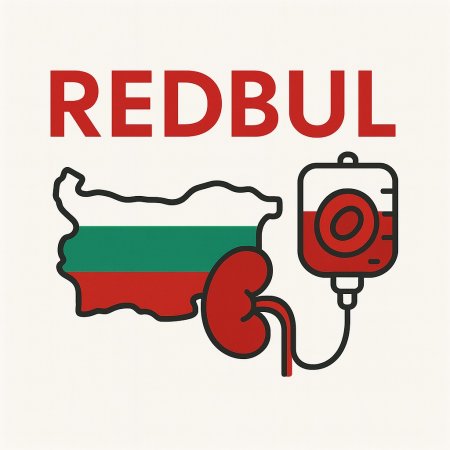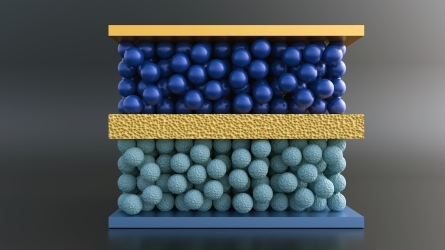
Self-Assembled Hybrid Materials in Nanomedicine: From Non-Viral Vectors to Cancer Therapy and Neurostimulation
25-27 February 2026| San Sebastián, Spain
Submit abstracts by 5 February 2026
We are pleased to announce that the preliminary scientific program, including all confirmed lectures and sessions, is now available on the website.
Description
San Sebastián (Spain) will host the conference Self-Assembled Hybrid Materials in Nanomedicine: From Non-Viral Vectors to Cancer Therapy and Neurostimulation, from February 25 to 27, 2026.
Discover the latest breakthroughs in self-assembled and smart materials combining polymeric, inorganic, and biological components for innovative applications in gene delivery, cancer therapy, organ preservation, neurostimulation, and more.
This exciting conference will feature cutting-edge research in:
- Polymer & Nanomaterial Synthesis
- Targeting Strategies
- Engineered Biological Systems for Therapeutic Applications
- Biomedical Imaging and Image-Guided Nanomedicine
- Bioelectronics & Stimulation
The conference will cover both fundamental and applied science, ranging from polymer and nanomaterial synthesis, AI-guided design, and targeting strategies to molecular imaging, microbiology, synthetic biology, and bioelectronics in combination with nanomaterials.
The event will be of primary interest to material scientists, chemists, biologists, biomedical engineers, and biophysicists working in nanomedicine and at the interface of material and biological sciences.
The conference will also serve as a platform to present the results of the MSCA-RISE-2020 SUPROGEN project, which is coming to completion. In addition, the meeting will showcase results and receive support from:
- THERABOT Project “Therapeutic Bacteria Biohybrids For Oncology Treatment” (MSCA-EXCHANGES, Project ID 101182953 Programme HORIZON)
- Japan Society for the Promotion of Science (JSPS) Core-to-Core Program "Establishment of an International Research and Education Center for Living Theranostics Biohybrids (LIV-BIO)”
- REDBUL Program Training for Excellence in Nanotechnologies for synthetic oxygen carriers for allograft Perfusion for Transplantation (BG16RFPR002-1.009-0004-01 "Support for Bulgarian scientific organizations with projects that have passed the assessment thresholds under the Horizon Europe program - HORIZON-WIDERA-2023-ACCESS-02 (Twinning)
ABSTRACTS
Submit abstracts by 5 February 2026
Authors are kindly requested to use the abstract TEMPLATE when preparing their submission.
Special issue Colloids and Surfaces B: Biointerfaces and JCIS open
Authors whose abstracts have been accepted and whose corresponding oral or poster presentations are delivered at SAHMN 2026 will be invited to submit either a review article or a full research manuscript for consideration for publication in a Virtual Special Issue dedicated to the SAHMN 2026 Conference.
The Special Issue, entitled
“Self-Assembled Hybrid Materials in Nanomedicine: From Non-Viral Vectors to Cancer Therapy and Neurostimulation,”
will collect high-quality contributions reflecting the scientific scope and discussions of the conference.
All submitted manuscripts will undergo the journal’s standard peer-review process, and acceptance for presentation at the conference does not guarantee publication.
Further details regarding submission guidelines and deadlines will be communicated to eligible authors after the conference.
Objectives
- Advance scientific exchange by showcasing the latest developments in self-assembled and hybrid nanomaterials for biomedical applications.
- Raise visibility of interdisciplinary approaches that bridge materials science, chemistry, biology, and medicine to address pressing challenges in nanomedicine.
- Foster collaboration and critical analysis among researchers at all career stages to drive innovation in therapeutic strategies, diagnostics, and biohybrid technologies.
Activity directed to
- University student
- Teachers
- Professionals
Methodology
The conference will take place at the Palacio Miramar, located in the heart of San Sebastián Bay. The program combines traditional academic formats with opportunities for early-career engagement. It includes:
- Plenary presentations (45 minutes) by leading international experts.
- Keynote sessions (25 minutes).
- Oral contributions (15 minutes), poster sessions and oral flash presentations (5 minutes) encouraging lively discussion and networking.
Directors
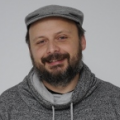
Sergio Moya
CIC biomaGUNE
Sergio E. Moya completed his undergraduate studies in Chemistry at the National University of the South, Argentina, and obtained his PhD in Physical Chemistry at the Max Planck Institute of Colloids and Interfaces, Germany. He carried out postdoctoral research at the Collège de France and at the University of Cambridge, UK. Since 2007, he has led a research group at CIC biomaGUNE, Spain. He has held adjunct faculty positions at Zhejiang University, China, and is currently Adjunct Professor at the Faculty of Medicine, Chulalongkorn University, Thailand. Dr. Moya is the author of more than 310 peer-reviewed publications in the fields of soft matter, nanomedicine, and physical chemistry. His research group specialises in polyelectrolytes, hybrid materials and supramolecular chemistry at the interface with biological sciences.
Speakers
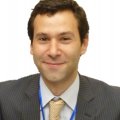
Horacio Cabral
Universidad de Tokio
Dr. Horacio Cabral is an Associate Professor in the Department of Bioengineering, The University of Tokyo. His research focuses on the development of nanomedicines against intractable diseases. Several of his nanocarriers for anticancer drugs have progressed to human clinical trials, showing enhanced safety and improved patient survival. His work has significantly advanced the understanding of nanomedicine design for targeted delivery and enhanced efficacy. More recently, his research has expanded to developing innovative nanomedicines for proteins and nucleic acids, aiming to create next-generation therapeutics. These advances have led to the co-founding of two startup companies. He has authored over 150 publications in high-impact journals, including Nature Nanotechnology and Nature Biomedical Engineering, and holds more than 30 patents. Dr. Cabral has been recognized with numerous awards, such as the 2023 Dean’s Award for Research from The University of Tokyo. He serves on the editorial boards of the Journal of Controlled Release, STAM, Nanomaterials, Frontiers in Oncology and MedComm, and in the advisory board of Macromolecular Bioscience.

Vincenzo Cerullo
Professor Cerullo obtained his PhD from the Center of Genetic Engineering (CENIGE) at the University of Naples Federico II in 2004, followed by postdoctoral training at Baylor College of Medicine, Houston, USA. In 2009, he joined the University of Helsinki as Senior Researcher and in 2012 became a tenured professor, founding the ImmunoViroTherapy Laboratory (IVTLab; www.ivtlab.org). IVTLab has secured over €8 million in competitive research funding, including three ERC grants, and has raised more than €50 million for entrepreneurial activities. The group has produced numerous publications and patents and co-founded two spin-offs (VALO Therapeutics and GlobeVAC). Professor Cerullo received the Outstanding Young Investigator Award from the European Society of Gene and Cell Therapy (2014), the Excellence in Research Award from the American Society of Gene and Cell Therapy (2015), and the Outstanding Achievement Award from the Dutch Society for Gene Therapy (2025). He is committed to science communication, contributing to the Science in Slush program (2015–2017) and delivering a TEDx lecture on creativity in science.
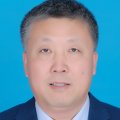
Changyou Gao
Zhejiang University
Changyou Gao is a Cheung Kong Scholar of Ministry of Education of China, a winner for the National Science Fund for Distinguished Young Scholars of China, and a fellow of the International Federation of Biomaterial Science and Engineering Societies, the American Institute of Medicinal and Biological Engineering, the Royal Society of Chemistry, and the Chinese Society of Biomaterials. He is now serving as a deputy president of Chinese Society of Biomaterials, and an associate editor of Biomaterials Advances and Progress in Materials Science. His research interests include self-adaptive biomaterials, immuno-modulation biomaterials, anti-bacterial biomaterials and their applications in tissue repair and regeneration. He has published more than 500 papers with an H-index of 88.

Twan Lammers
RWTH Aachen University
Twan Lammers obtained a D.Sc. in Radiation Oncology from Heidelberg University and a Ph.D. in Pharma-ceutics from Utrecht University. In 2009, he started the Nanomedicine and Theranostics group at RWTH Aachen University, where he was promoted to full professor of medicine in 2014. His group aims to individ-ualize and improve disease treatment by combining drug targeting with imaging. To this end, image-guided (theranostic) drug delivery systems are being developed, as well as materials and methods to monitor tu-mor growth, angiogenesis, inflammation, fibrosis and metastasis. Lammers has received multiple scholar-ships and awards, including ERC starting, consolidator and proof-of-concept grants, the CRS Young Investi-gator Award and the CRS Exceptional Leadership Award. He served as president of CRS in 2023-2024 and currently is secretary of ESMI. He acts as associate editor for JCR, DDTR and MIB. Since 2019, he has been included in the Clarivate Analytics list of Highly Cited Researchers.

Aitziber Lopez Cortajarena
CIC biomaGUNE, Directora Científica
Prof. Aitziber Cortajarena earned her Ph.D. in Biochemistry from the Universidad del País Vasco in 2002. Then, she worked on protein design in the group of Dr. Lynne Regan at Yale University, USA, as a Postdoctoral Fellow and Associate Research Scientist. She joined IMDEA Nanociencia in 2010 and started her independent research in nanobiotechnology. In 2016, she joined CIC biomaGUNE as Ikerbasque Research Professor. Currently, she leads the Biomolecular Nanotechnology group and is Scientific Director at CIC biomaGUNE since 2022. Her research focuses on protein engineering toward the generation of functional nanostructures and bioinspired materials for applications in biotechnology and biomedicine.

Raffaele Mezzenga
ETH-Zürich
Raffaele Mezzenga received his PhD from EPFL in 2001 and spent 2001/02 as a postdoc at UBSB, Santa Barbara, working on self-assembly of polymer colloids. In 2003 he moved to Nestlé Research Center as research scientist, working on self-assembly of biocolloids and liquid crystals. In 2005 he was hired as Associate Professor in Physics at the University of Fribourg, and joined ETHZ on 2009 as Full Professor. His research focuses on the fundamental understanding of self-assembly processes in polymers, lyotropic liquid crystals, food and biological colloidal systems and the design of nanotechnologies for health and environmental remediation. Prof. Mezzenga is recipient of several national and international distinctions such as the 2004 SNSF Professorship Award, the 2011 AOCS Young Scientist Research Award, the 2011 Dillon Medal and the 2017 Fellowship of the APS, the 2013 Biomacromolecules/Macromolecules Young Investigator Award of the ACS, and the 2018 Spark Award for the most promising invention of the ETH Zurich. He is the 2025 ECIS-Syensqo Award laureate and a top 0.1% Highly Cited ResearchersTM according to the Clarivate 2023 list for the cross-field discipline.

Ravin Narain
Ravin Narain, PhD, PEng, FRSC, is a Professor in the Department of Chemical and Materials Engineering at the University of Alberta, Canada. He has made significant contributions to biomedical research using safe polymer-based biomaterials. His research has also covered nano- and regenerative medicine, with an emphasis on developing materials for cancer therapeutics, anti-fouling and anti-microbial surfaces, and cell/tissue engineering advances. He has published over 250 articles in peer-reviewed journals and has edited several books namely Engineered Carbohydrate-Based Materials for Biomedical Applications (Wiley), Chemistry of Bioconjugates (Wiley), Polymers and Nanomaterials for Gene Therapy (Elsevier), Polymer Science and Nanotechnology (Elsevier), and Natural and Synthetic Hydrogels (Elsevier). He was appointed as the section editor for the 2nd edition Comprehensive Glycoscience (Elsevier). He has received many awards including the Distinguished Visiting Scientist Award from Commonwealth Scientific and Industrial Research Organization (CSIRO) in Australia.
Registration fees
| Registration | Until 18-02-2026 |
|---|---|
| 450,00 EUR | |
| 0 EUR |
Venue
Miramar Palace
Pº de Miraconcha nº 48. Donostia / San Sebastián
Gipuzkoa
Miramar Palace
Pº de Miraconcha nº 48. Donostia / San Sebastián
Gipuzkoa
